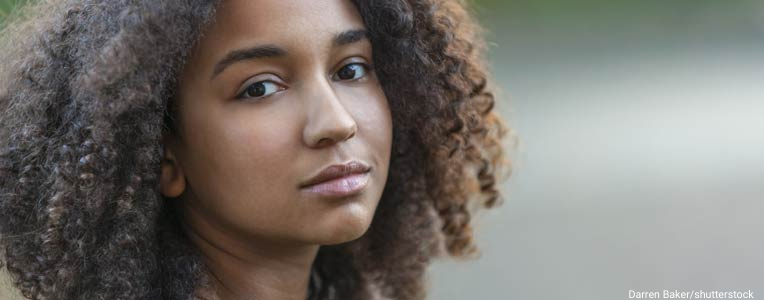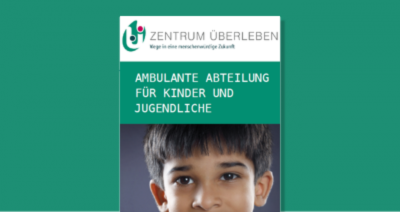Department
Children and Youth Department

The Children and Youth Department at the Center ÜBERLEBEN has been working with traumatized children and adolescents since 2000. Our goal is to support these young people in coping with their everyday life in exile. We are trying to reduce the painful effects of war-related trauma in fostering appropriate development for children and adolescents.
There are currently 26 therapy places available with the possibilty of additional specialized psychiatric treatment. Each year over 80 individuals are being treated or are getting council. These young people come mostly from African Countries like Somalia or Eritrea, Syria, Afghanistan, Iraq and the Caucasus.
Children and Young People on the run
More than half of all refugees throughout the world are children and adolescents. According to the estimations of UNICEF this amounts to almost 50 million children. They are escaping war, violence, forced recruitment or abduction as well as political, religious and gender-specific persecution. Many thousands of children and adolescents refugees live in Berlin, and many of these have suffered severe psychological damage through their experiences of war and escape.
The target group of the Children and Youth Department are children from refugee families as well as unaccompanied refugee minors, who have been traumatized by such events as those mentioned above. They have symptoms that indicate the presence of a Post-Traumatic Stress Disorder (PTSD) or other psychological disorders.
Team
We are a multiprofessional team consisting of Child and Adolescent Psychotherapists and several social workers with different specialties. We consider and respect the social, legal and psychological or medical situation of individuals in counseling and therapy.
Follow-up care
Due to the particular situation that minor refugees find themselves in, sometimes therapy or learning is not enough. Particularly with those who have reached their 18th birthday, at which point the youth support and with it sometimes also the therapeutic treatment comes to an end, there is the need for additional individual support. This support can range from assistance in residency rights matters, advice on developing daily routines and structure in life, coordination of further medicinal or therapeutic treatments, assistance in administrative and official matters, and finding trainings as well as employment.


